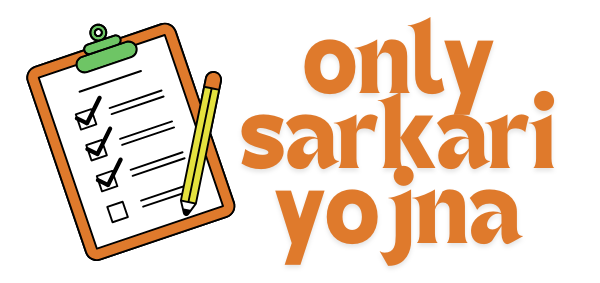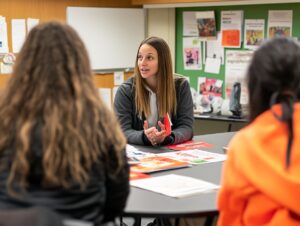In the current, rapidly evolving educational landscape, educators are continually seeking innovative tools and resources to enhance lesson planning and curriculum development.
This article examines a range of online resources that have the potential to transform the teaching experience.
From engaging websites that offer lesson ideas to interactive games designed to captivate students, as well as professional development opportunities that facilitate connections among educators, we address all the essential components required to foster an inclusive and dynamic learning environment.
Explore how these digital tools can elevate teaching practices and benefit students.
Why Use Online Resources?

The utilization of online resources has become imperative for both educators and students, as it offers a wide array of free resources and educational websites that significantly enhance the learning experience. With various teaching tools readily available, educators are better equipped to improve classroom management and student engagement, which ultimately leads to enhanced professional development opportunities.
For example, platforms such as Khan Academy and Edmodo provide interactive lessons and collaborative spaces that adapt to individual learning paces, facilitating a more personalized approach to education. Educators also have access to a wealth of training modules and webinars that not only refine their teaching skills but also introduce innovative instructional strategies.
Websites like Teachers Pay Teachers create a marketplace for resources developed by fellow educators, allowing them to discover effective materials that align with their teaching style. By integrating these online resources into their curricula, educators can cultivate a dynamic and inclusive atmosphere, ensuring that all students succeed in today’s digital learning environment.
Lesson Planning and Curriculum Development
Effective lesson planning and curriculum development are essential elements of successful teaching, as they offer structured guidance for educators in delivering quality education.
By utilizing a variety of curriculum resources and teaching strategies, educators can develop customized lesson plans that address the diverse needs of their students.
Additionally, the integration of online tools and digital resources can significantly enhance instructional design and support the implementation of assessment tools that evaluate student progress and engagement.
Websites for Lesson Plans and Ideas
Numerous educational websites are dedicated to providing lesson plans and ideas that assist teachers in their pursuit of engaging and effective teaching aids. These platforms offer a wealth of online resources that enable educators to develop innovative and tailored lesson ideas, facilitating alignment with curriculum standards and the achievement of learning objectives.
By utilizing these websites, teachers can enhance their teaching methodologies and create a more interactive learning environment for their students.
- One notable example is Teachers Pay Teachers, which enables educators to share their unique lesson plans while also offering a marketplace for downloadable resources. This ensures that teachers have access to a diverse array of teaching strategies.
- Another platform, Education.com, provides comprehensive and user-friendly lesson planning tools that can be searched by grade level and subject area, allowing educators to quickly locate appropriate materials.
- Websites such as Scholastic offer a combination of lesson ideas alongside current articles and activities that make learning relevant, thus presenting multiple opportunities for educators to incorporate current events into their curriculum.
By leveraging these resources, educators can save valuable time while enhancing their teaching practices and increasing student engagement.
Online Tools for Curriculum Mapping
Online tools for curriculum mapping are increasingly favored by educators for their capacity to effectively organize and align educational goals with teaching strategies. These digital resources equip educators with the ability to visualize educational objectives, ensuring that instructional design is both coherent and comprehensive.
By utilizing these innovative platforms, educators can customize learning experiences that not only adhere to curricular standards but also engage a diverse range of learners.
Additionally, online curriculum mapping tools frequently incorporate collaborative features, enabling educators to share insights and collectively refine instructional materials. This collaborative approach not only promotes best practices but also cultivates a sense of community among educators.
The data-driven insights generated by these tools can enhance teaching strategies, allowing for timely adjustments to effectively meet the needs of students.
Ultimately, the strategic integration of curriculum mapping technology has the potential to improve educational outcomes, ensuring that students successfully achieve their learning objectives.
Student Engagement and Learning
Student engagement is a vital component of effective learning, and the use of interactive activities and educational games can substantially improve the learning experience.
By incorporating methodologies such as virtual instruction and formative assessments, educators have the opportunity to establish dynamic and engaging environments that not only motivate students but also promote deeper learning.
The integration of these innovative approaches cultivates a vibrant classroom culture that emphasizes active participation and collaborative learning.
Interactive Games and Activities

Interactive games and activities play a crucial role in enhancing student engagement by making the learning process enjoyable and memorable. These educational games can be customized to suit various subjects and age groups, enabling educators to implement innovative teaching strategies that effectively capture students’ interest and promote active participation.
By incorporating these interactive elements into classroom activities, teachers can cultivate a stimulating learning environment that encourages collaboration and critical thinking.
For example, utilizing role-playing games in a history class allows students to immerse themselves in historical events, facilitating a deeper understanding and retention of knowledge.
Math scavenger hunts can stimulate critical problem-solving skills as students collaborate in teams to solve equations distributed throughout the classroom. Additionally, digital platforms that host quiz competitions can transform revision sessions into competitive and engaging experiences while offering instant feedback.
Integrating these interactive games not only enhances comprehension but also fosters teamwork and communication skills, which are essential for the overall development of students.
Virtual Field Trips and Simulations
Virtual field trips and simulations represent innovative educational tools that enable students to explore new environments and concepts without the necessity of leaving the classroom. These digital learning experiences effectively utilize educational technology to create immersive simulations that can deepen the understanding of complex topics and foster independent learning resources.
By incorporating these tools into the curriculum, educators can offer rich, experiential learning opportunities that accommodate diverse learning styles.
A noteworthy advantage of virtual field trips is their accessibility; students have the opportunity to visit historical landmarks, wildlife reserves, and art museums from around the globe, thereby broadening their perspectives without the limitations imposed by geography or budgetary constraints.
Platforms such as Google Expeditions and Nearpod provide interactive experiences where students can engage with their surroundings in a 360-degree format, thereby fostering deeper engagement. In addition, simulations available on PhET Interactive Simulations allow learners to experiment with scientific concepts within a safe and controlled environment.
By integrating these resources into lesson plans, educators can inspire students and encourage collaboration, ultimately enhancing the overall learning experience and improving knowledge retention.
Professional Development and Collaboration
Professional development is crucial for educators to improve their teaching effectiveness and remain informed about best practices in the field of education.
Online courses and workshops offer valuable opportunities for continuous learning while promoting collaboration among teacher communities.
By engaging in instructional coaching and participating in networking opportunities, educators can exchange insights and strategies that contribute to their professional growth and enhance student outcomes.
Online Courses and Webinars
Online courses and webinars have significantly transformed professional development for educators, providing flexible avenues for acquiring new skills and knowledge. These formats enable educators to pursue teaching certifications and participate in educational conferences from the comfort of their homes, ensuring they remain informed about the latest trends and pedagogical strategies.
By engaging in these professional development opportunities, educators can enhance their expertise and refine their instructional practices.
Numerous platforms, such as Coursera, EdX, and Educators’ Network, offer a diverse array of courses specifically designed for teachers, addressing various topics from classroom management to the integration of technology into lesson plans.
Educators can obtain certifications that are recognized by school districts, thereby enhancing their professional credentials. These certifications not only affirm their commitment to lifelong learning but also enable them to implement innovative teaching methods within their classrooms.
Through interactive webinars hosted by educational leaders, teachers can engage in discussions, share experiences, and acquire insights that can be immediately applied, thereby fostering a collaborative learning environment even in a virtual setting.
Teacher Communities and Forums
Teacher communities and forums serve as invaluable platforms for peer networking, enabling educators to connect, share resources, and collaborate on various teaching practices. These spaces foster a sense of community where educators can exchange ideas, seek advice, and remain informed through teaching blogs and discussions.
By participating in these forums, teachers can enhance their professional development and discover innovative teaching methodologies.
Among the most prominent platforms in this arena are websites such as:
- Edutopia
- TeacherPayTeachers
- Various Facebook groups dedicated to specific subjects or teaching levels
These online networks provide educators with access to a wealth of resources, including lesson plans, classroom management strategies, and tips for technology integration.
Forums frequently feature discussions on the latest educational trends, facilitating teachers’ adaptation of their practices to meet evolving standards. This collaborative environment not only alleviates feelings of isolation among educators but also enables them to improve their teaching effectiveness through shared experiences and collective wisdom.
Accessibility and Inclusivity

Accessibility and inclusivity are fundamental elements of a successful educational environment, ensuring that all students have the opportunity to excel.
By utilizing special education resources and multilingual tools, educators can establish a learning atmosphere that addresses diverse needs and backgrounds.
The incorporation of educational technology is instrumental in promoting inclusivity, as it facilitates personalized learning experiences tailored to each student’s unique requirements.
Resources for Students with Special Needs
Resources for students with special needs are essential in fostering an inclusive educational environment, ensuring that each learner receives the necessary support to achieve success.
By implementing targeted teaching strategies and instructional designs that cater to diverse needs, educators can provide interventions that enhance student engagement and learning outcomes. These resources equip teachers to develop effective lesson plans and assessments that accommodate a variety of learning challenges.
Various tools, including assistive technology, visual aids, and specialized curricula, can significantly bolster these efforts. For example, adaptive software facilitates personalized learning pathways, addressing individual strengths and weaknesses.
Collaboration with specialists can further enhance the effectiveness of these resources, promoting a comprehensive approach to instruction. Consequently, students not only engage more profoundly with the content but also experience improved outcomes, thereby building their confidence and skills within a supportive environment.
When tailored approaches are consistently applied, the overall academic experience is enriched, resulting in greater success for all learners, irrespective of their unique challenges.
Multilingual and Culturally Diverse Resources
Multilingual and culturally diverse resources are critical for developing an inclusive curriculum that honors and celebrates the diverse backgrounds of all students. These resources may encompass teaching aids, educational websites, and global education materials that enable educators to engage effectively with culturally diverse classrooms.
By incorporating these materials into their instructional practices, educators can facilitate language learning and promote cultural awareness among their students.
Such resources not only offer students a wider perspective on global cultures but also enhance their capacity to communicate proficiently in multiple languages. For example, utilizing platforms like Duolingo for language acquisition or exploring literature from various cultures can stimulate interest and actively engage learners.
Moreover, incorporating materials such as bilingual books or culturally relevant documentaries can help bridge gaps in understanding and foster empathy.
Consequently, educators can create a comprehensive educational experience that equips students for participation in a globalized society, ultimately cultivating a community of culturally competent individuals.
Frequently Asked Questions
What are the best online resources for teachers?
Some of the best online resources for teachers include websites like Teachers Pay Teachers, Teach Starter, and Edutopia, as well as educational apps like Kahoot! and Quizlet.
Can you recommend any free online resources for teachers?

Yes, there are many great free online resources for teachers, such as Khan Academy, TED-Ed, and Google Classroom. These resources offer a wide range of lesson plans, activities, and educational videos.
What are the benefits of using online resources for teaching?
Using online resources allows teachers to access a vast amount of educational materials, engage students in interactive activities, and easily collaborate with other educators. It also saves time and effort in lesson planning.
Are there any online resources specifically for special education teachers?
Yes, there are several online resources tailored for special education teachers, such as Special Education Guide, Understood, and the Council for Exceptional Children website. These resources offer support, resources, and tips specifically for teaching students with special needs.
How can I find the best online resources for my specific subject or grade level?
One way to find the best online resources for your specific subject or grade level is to ask fellow teachers for recommendations. You can also search for online communities or forums related to your subject or grade level to find resources that have been tried and tested by other educators.
Are there any online resources that provide professional development for teachers?
Yes, there are many online resources that offer professional development for teachers, such as edX, Coursera, and TeachersFirst. These resources provide courses, webinars, and workshops to help improve teaching skills and stay updated on the latest educational trends.




